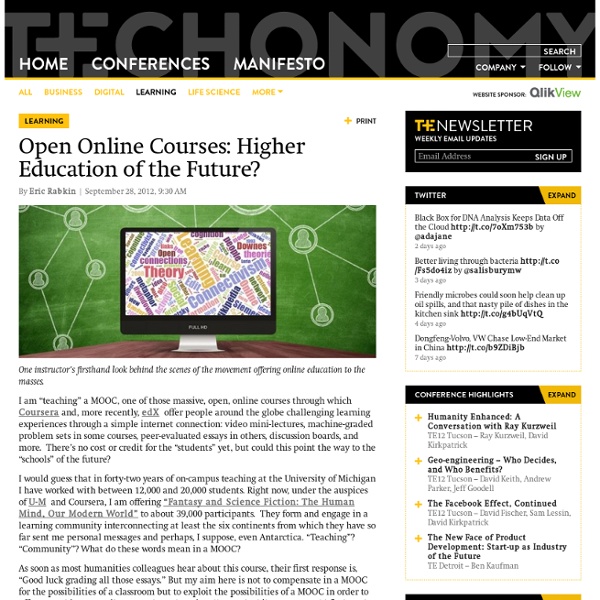Open Online Courses: Higher Education of the Future? - Techonomy

Make a homepage in minutes
Free Website Builder, Free Content Management System and Free Shopping Cart - Web Widgets Ltd - NZ
What Ed Said
iLearn Technology
Free Technology for Teachers
Cool Cat Teacher Blog
Animated Computer gifs
Please do not link directly to any of the graphics on this site. I am always moving and rearranging things and it may not be here next week! Right click on the graphic you wish to use and then choose save as from the pop-up menu. Save the file in My Documents on your computer or on a disc. You may then upload the file onto your server or into your account and use it wherever you wish. A link back to MemeArt would be appreciated. Back to Clipart and Animated gif Index. Clipart and animated gifs.
A Style Guide Guide | elyse holladay
At my job, I’m one of two designers. My coworker is an incredibly talented designer, but comes from an agency background, and doesn’t code. We are rebooting our company’s existing app with all-new design and functionality. He’s been working on some excellent concepts for it, and we are almost ready to think about visuals. With a small dev team in house supplemented by off-shore teams, and an immense number of sections to build, I want us to work more off of some concept screens, a style/assets guide, and modular sections that we can reuse. We also have to consider that many of our target users will be on non-3G enabled iPads, so mobile performance and touch affordances are key factors. For those of you that attended AEA Austin, or probably any of the other AEAs, much of this was discussed there. He asked me to write up a list of “best practices,” if you will, for him to base his visual style work off of. Style Guide Guidelines For designing responsively… For user experience… Visually…
Word Detective Word Search Game
Math Reading Fun Playground About Funbrain.com, a Division of Poptropica Worldwide | Link to Us | PRIVACY POLICY * Updated 10/2013 | Terms of Use K-8 Kids | Poptropica | Homework Help | Reference Site | Parenting Advice | Teacher Resources © 2000 -2014 Pearson Education, Inc.
Google's Open Course Builder: A Giant Leap into 21st Century Online Learning
"Google's mission is to organize the world's information and make it universally accessible and useful." -- About Google Google is the most powerful nonhuman teacher ever known to actual humans. Implicitly and ceaselessly, Google performs formative assessments by collecting the following data: the content, genre and media that interests you most; when and for how long you access your external cloud brain; what your hobbies and routines are; with whom you work and communicate; who will get your November vote; and whether you prefer invigorating clean mint or enamel renewal toothpaste. By continuously refining the nuance of your sociogram, Google has already customized your next web exploration and taught itself to teach. You Are Now Entering the Learning Management System If you are an advanced geek, you will be able to author and publish your own e-learning space using Open Course Builder. With his gray beard and soothing demeanor, Senior Research Scientist Daniel M. Credit: Google
What You Need to Know About MOOC's - Technology
We'll be updating this page regularly.Please check back for updates. Call it the year of the mega-class. Colleges and professors have rushed to try a new form of online teaching known as MOOCs—short for "massive open online courses." The courses raise questions about the future of teaching, the value of a degree, and the effect technology will have on how colleges operate. Struggling to make sense of it all? If you'd like to learn more about MOOCs in a condensed format, try reading "Beyond the MOOC Hype: A Guide to Higher Education's High-Tech Disruption," a new e-book by The Chronicle's technology editor. What are MOOCs? MOOCs are classes that are taught online to large numbers of students, with minimal involvement by professors. Why all the hype? Advocates of MOOCs have big ambitions, and that makes some college leaders nervous. These are like OpenCourseWare projects, right? Sort of. So if you take tests, do you get credit? Who are the major players? edX Coursera Udacity Khan Academy Udemy May 2
Related:
Related:



